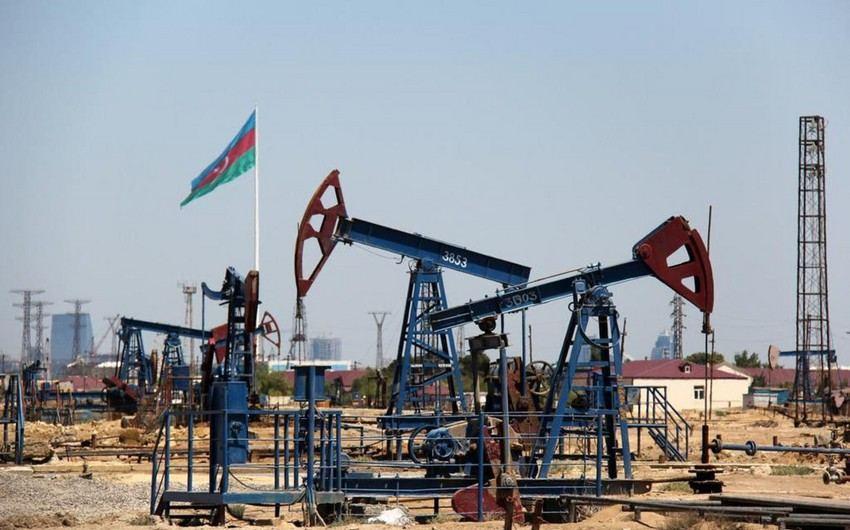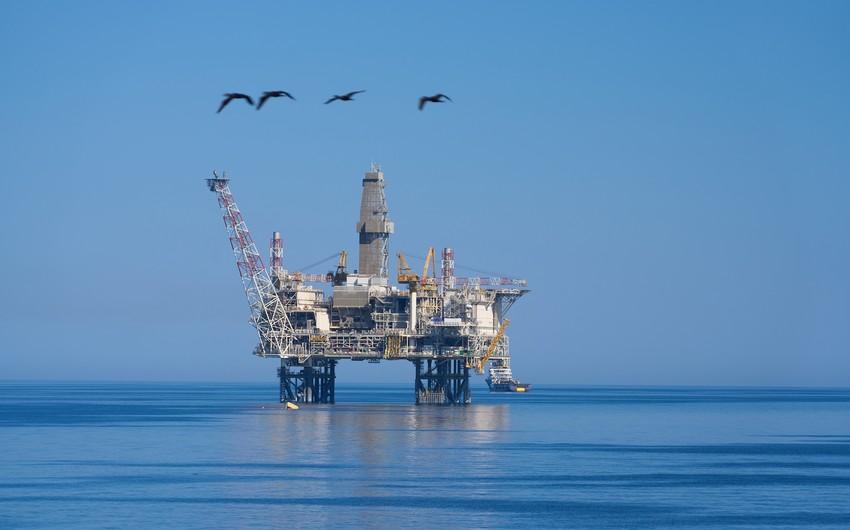Global trends and Azerbaijan's oil industry Second wind of ACG field
Since mid-March, stock markets have seen a tangible increase in demand for commodities: gold, base metals and oil are becoming more expensive. Many experts argue that these trends will be stable during 2024 against the background of increasing geopolitical tension in the world and fears of disruptions in the supply of hydrocarbons.
These trends are certainly favourable for Azerbaijan, where, due to objective reasons, oil production has been declining in recent years. In this regard, the global growth in hydrocarbon prices partially compensates for the losses due to the decline in production in the country. At the same time, our country together with the oil consortium is striving to increase the production of energy resources: BP recently started oil production from the new Azeri Central East (ACE) platform.
The period of high oil price volatility associated with last year's global recession is over, and from March 2024 this trend has shifted to increased demand for energy commodities. Spot prices and exchange quotations for futures are rising amid escalating tensions in the Middle East, the ongoing Russian-Ukrainian conflict, also affecting the reduction of production in Russia and the decline in oil and fuel reserves in the US, and the policy of OPEC+ states aimed at refusing to increase production this year.
It is predicted that the growth in demand for hydrocarbons in 2024 will also stimulate the policy of financial regulators in the US and Europe, intending to move to lower interest rates, which will support the industrial and consumer sectors and, as a consequence, stimulate a price rise for fuel and petrochemical products. These trends also contribute to the growth of prices for Azeri Light: the day before it was traded on a CIF basis in the Italian port of Augusta at $93.06 per barrel, and in the Turkish port of Ceyhan a little cheaper - $91.3.

Thus, the international trading company Vitol believes that oil prices in the current year will fluctuate in the range of 80 to 100 dollars per barrel, and global oil demand will grow by 1.9 million barrels per day. Other experts believe that the gradual strengthening of "bullish" trends in commodity markets and the complex geopolitical situation in the world even contribute to overcoming the landmark $100 mark. But even if the average annual price remains within the range of $80, Azerbaijan will definitely remain a beneficiary of the global processes of stabilization of the energy market.
It is quite obvious that our country is interested in further growth of oil prices, as it will allow us to compensate for losses caused by the objective decrease of oil production at the Azeri-Chirag-Deepwater Guneshli (ACG) field and other offshore areas. Thus, in 2023 oil and condensate production in the country passed 30.189 million tons, which is 7.5 per cent lower than in 2022. This negative trend continued in the first quarter of this year: oil and condensate production amounted to about 7.3 million tons, down 5.2 per cent compared to January-March last year.
In 2024, Azerbaijan will mark the 30th anniversary of the start of development of the Azeri-Chirag-Gunashli block, where over 4.3 billion barrels of oil have been produced from 1997 to date. Nevertheless, in recent years, due to objective reasons, there has been a decline in oil production rates here: reserves depletion and well flow rate decrease both at the key oil field of the republic ACG (2/3 of the total oil production in the country) and at some other offshore areas. A slight decline in oil production last year was also observed in fields owned by the State Oil Company of Azerbaijan (SOCAR).
Nevertheless, the current favourable external environment is by no means the only factor influencing the increase in profits of the republic's oil industry. In the last period, BP consulted with the Azerbaijani government and SOCAR on the effective management of the ACG field block until 2049.
"We together with the State Oil Company of Azerbaijan, having united in a single team, are having serious discussions on the problem of reducing oil production, extending the life of reservoirs and maximizing production efficiency both through the technical capabilities of BP as operator and the technical capabilities of SOCAR," Bakhtiyar Aslanbeyli, BP's vice president for communications and external relations for the Caspian region, said late last year.
Through these joint efforts, the ACG field block will be given a second wind. In mid-September 2017, Baku hosted the signing of a new contract for the development of the ACG block until the end of 2049: in particular, it concerns the development of the Azeri Central East (ACE) field, a project implemented within the second phase of the Contract of the Century. According to BP experts, recoverable oil reserves in the ACE field block are estimated at three billion barrels of oil. A new offshore platform has been under construction at the ACE block as part of the second phase of oil production since 2019. Construction work on the $6 billion project was recently completed, and the commissioning of the new ACE production platform on the ACG block will have a positive impact on the overall oil production of the entire field.
BP estimates that the new ACE platform is one of the most technologically and digitally advanced platforms in the world: its innovative work automates labour-intensive processes, enabling safer and more efficient operations. The platform is equipped with a modern, fully automated drilling rig, and in general, the level of automation of this facility allows the drilling processes to be controlled remotely, without the presence of personnel on the platform.

"As operator of the ACE project, BP announces on April 16 the start of oil production from the new Azeri Central East platform as part of the development of the ACE field block in the Azeri sector of the Caspian Sea," BP-Azerbaijan said in an official statement. - This is the seventh platform installed in the ACE field block and the first oil from the ACE platform was from a production well (3,150 meters deep) drilled since the end of 2023".
According to BP-Azerbaijan, two more production wells will be drilled and commissioned at ACE during 2024, bringing the platform's daily oil production to 24,000 barrels by the end of this year. The new production platform and associated facilities are designed to recover up to 100,000 barrels of oil per day at peak when all 48 of ACE's planned 48 wells are on production.
It is expected that up to 300 million barrels of oil will be produced in the Central and Eastern sections of the ACE during the entire period of ACE's active operation. It is quite obvious that the new platform will contribute to the stabilization of oil production at ACE in the coming years, moreover, in the foreseeable future it is forecasted to increase the production of liquid hydrocarbons (oil and condensate) in other fields of the country.
In particular, according to the recently published data of the OPEC cartel, in 2024 the production of liquid hydrocarbons in Azerbaijan will increase by about 14,000 barrels per day (bpd) and will reach 700,000 bpd on average: this growth will be partially provided by the gas condensate projects Shahdeniz, Absheron and Umid-Babek. According to the OPEC report, Azerbaijan's production of liquid hydrocarbons from just over 600,000 bpd in the first quarter of 2024 will gradually increase, and in the II-IV quarters is projected to grow to 700,000 bpd. According to OPEC estimates, the same volume of oil production will be provided in 2025.








